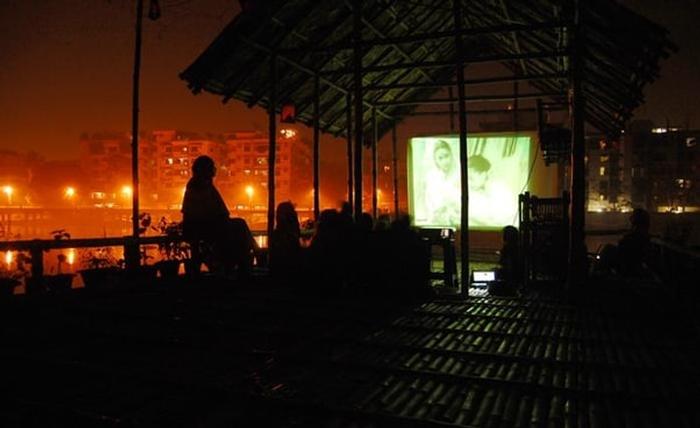Reva Saksena and Mallika Sarabhai - ProposalTo Pride From Prejudice: An Architectural TransitionArchitecture has long been a testimony of society. It has shaped not only society's own identity but that of its so-called 'contradictions' as well.
Over the years, a wide range of thought-provoking perspectives has been curated in the Berkeley Prize pool of essays. Several essays have highlighted the ideas and efforts for upliftment of underprivileged communities across the globe- the homeless, street-children, slum-dwellers, migrants, destitute women and differently-abled. These explorations have underlined the larger social responsibility for architecture to amend and rehabilitate inequitable approaches plaguing society.
However, one such 'contradiction' of society seems to have missed the attention of Berkeley Prize authors so far. It has also been left unaddressed by architecture, especially in India- the third Gender.
The trans-community in India faces rampant social stigma. Negative perceptions and ostracism has pushed them to the fringes of society and dire living conditions. They survive by singing and performing at people's houses on important social functions. At all other times, they are shunned.
Ironically, the trans-community enjoyed a higher social status in ancient India. Vedic literature recognizes the absence of procreative capability of a person as natural; so natural that Sanskrit, apart from the masculine and feminine, has a third gender, the neuter gender or 'napunsakalinga'. Much changed for transgenders in 1871 with the imposition of the 'Criminal Tribes Act' by the British. This denied them even basic civil rights.
Fortunately, India has recently repealed the draconian law. The judgements grant legal recognition to the third gender, restoring fundamental rights to all trans-citizens. This opens immense possibilities for architecture to mainstream this marginalised section of society and shape its dreams.
This community has a unique set of traditions and follows some social structure. Most localities have a 'Guru' who is responsible for taking care of 'chelas' or disciples. They live together in a 'Gharana'- a small house with an obscure entrance leading to a courtyard within. Hardly any windows look outside. Singing and dancing are practised here. A smaller space called 'Shringaar' is where the 'chelas' adorn themselves with ornaments and flowers and engage in activities like oiling hair and applying makeup. The ground floor houses a community kitchen.
The Gharana offers a safe space for the confident expression of identity, away from the accusing eyes of society.
Architectural education enables us to understand trans-community's unique requirements-cultural, sociological and intellectual. Architecture can conceive humanitarian solutions and evolve quality spaces to accommodate new aspirations of the trans-community.
Recognition and identity could be the vehicles of transformation.
Despite a promising legislation, social thinking cannot change overnight. Architecture needs to provide continuity between trans-community's present setup and their more emancipated future. Its very relevance lies in its potential to harness people's ideas that drive interaction and inclusiveness. The architectural expression is completely intertwined with society's aspirations and sensibilities. It holds the key to lead communities to their truest potential by instilling an emotion that may otherwise only be elicited from the self: Pride.
"Architecture is an expression of will" -Nathan Koren,2000 Essay Prize Winner Additional Help and InformationAre you in need of assistance? Please email info@berkeleyprize.org. |

